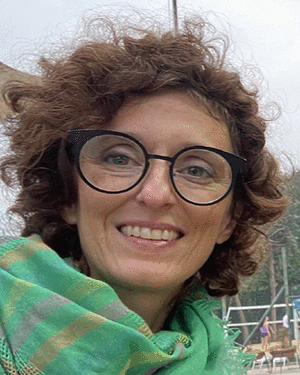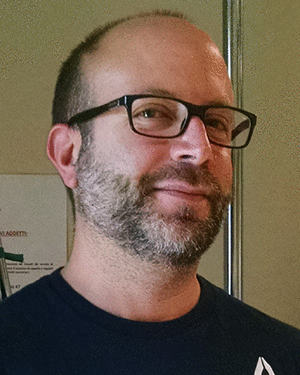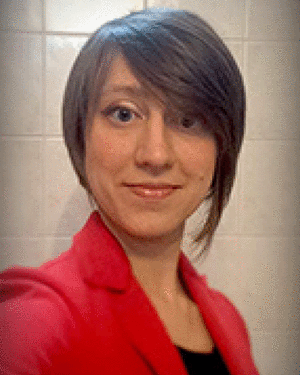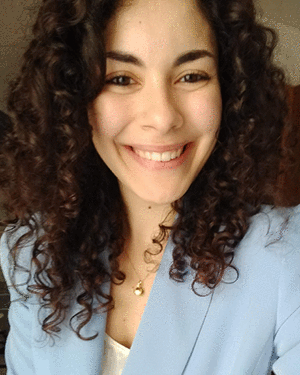Abstract:
The amount of news on the web often confuses the ideas of the reader, who struggles to disentangle information that is sometimes contradictory and difficult to decipher. ...Show MoreMetadata
Abstract:
The amount of news on the web often confuses the ideas of the reader, who struggles to disentangle information that is sometimes contradictory and difficult to decipher. In the face of such an articulated scenario, the role played by schools is absolutely central: the development of critical thinking in young people (and by extension in their families) is a necessary condition for facing the complexity of the reality with the right awareness and control. Providing young people with a thorough understanding of the fake news spreading phenomenon is a first step in combating it. To this end, in this article, we propose a serious game whose objective is to let young people experience the typical interaction scenario when faced to a feed of real and fake news in social media. Our proposal focuses on educational workshops, carried out in secondary schools and dedicated to the correct use of information on the web, with particular attention to logical fallacies and cognitive bias mechanisms that lead to the formulation of erroneous reasoning or prevent a comparison from progressing logically. Thanks to an intuitive interface that helps the teacher supervise the whole game session, the students are invited to assess the truthfulness of a small set of news at different levels and to share them with their friends. At the end of the game session, the teacher is provided with an interactive detailed report of the activities that enables the analysis of all participants' actions and behavior. The teacher can use such a report to conduct a classroom lecture in a more engaging and interactive way, by stimulating discussions among the students and raising their curiosity on the subject. Our educational platform has been tested accurately in a broad experimental study involving 217 middle school students. The results show the suitability of the platform in providing a valuable educational tool for supporting educational activities on fake news analysis.
Published in: IEEE Transactions on Learning Technologies ( Volume: 17)
Funding Agency:

Department of Computer Science, University of Turin, Turin, Italy
Laboratorio Informatica e Scuola, Consorzio Interuniversitario Nazionale per l'Informatica, Rome, Italy
Sara Capecchi received the M.Sc. degree from the University of Florence, Florence, Italy, in 2002, and the Ph.D. degree from the Department of Computer Science, University of Florence, in 2006, both in computer science.
Since 2010, she has been an Assistant Professor with the Department of Computer Science, University of Turin, Turin, Italy. Her main research interests include computer science education, conceptual models ...Show More
Sara Capecchi received the M.Sc. degree from the University of Florence, Florence, Italy, in 2002, and the Ph.D. degree from the Department of Computer Science, University of Florence, in 2006, both in computer science.
Since 2010, she has been an Assistant Professor with the Department of Computer Science, University of Turin, Turin, Italy. Her main research interests include computer science education, conceptual models ...View more

Department of Political, Social, and Communication Sciences, University of Salerno, Fisciano, Italy
Antonio Lieto received the Ph.D. degree in communication sciences (technology curriculum) from the University of Salerno, Salerno, Italy, in 2012.
He is an Associate Professor of Computer Science with the Department of Political, Social, and Communication Sciences, University of Salerno, Fisciano, Italy, where he leads the Cognition Interaction and Intelligent Technologies Lab. He is also a Research Associate with the Inst...Show More
Antonio Lieto received the Ph.D. degree in communication sciences (technology curriculum) from the University of Salerno, Salerno, Italy, in 2012.
He is an Associate Professor of Computer Science with the Department of Political, Social, and Communication Sciences, University of Salerno, Fisciano, Italy, where he leads the Cognition Interaction and Intelligent Technologies Lab. He is also a Research Associate with the Inst...View more

Department of Computer Science, University of Turin, Turin, Italy
Italian Ministry of Public Education, Rome, Italy
Federica Patti received the Ph.D. degree in history of architecture and urban planning from Politecnico di Torino, Turin, Italy, in 2009.
She was a Councillor for Education and School Construction of the City of Turin from 2016 to 2019, the year in which she became a permanent guest, until 2022, in the Suburbs Group of the National Observatory for the Integration of Foreign Pupils and Interculture at the Ministry of Educat...Show More
Federica Patti received the Ph.D. degree in history of architecture and urban planning from Politecnico di Torino, Turin, Italy, in 2009.
She was a Councillor for Education and School Construction of the City of Turin from 2016 to 2019, the year in which she became a permanent guest, until 2022, in the Suburbs Group of the National Observatory for the Integration of Foreign Pupils and Interculture at the Ministry of Educat...View more

Department of Computer Science, University of Turin, Turin, Italy
Ruggero G. Pensa received the M.Sc. degree in computer engineering from the Politecnico of Turin, Turin, Italy, in 2003, and the Ph.D. degree in computer science from the Institut National des Sciences Appliquées de Lyon, Lyon, France, in 2006.
He is currently an Associate Professor with the Department of Computer Science, University of Turin, Turin. His main research interests include machine learning, data science, priva...Show More
Ruggero G. Pensa received the M.Sc. degree in computer engineering from the Politecnico of Turin, Turin, Italy, in 2003, and the Ph.D. degree in computer science from the Institut National des Sciences Appliquées de Lyon, Lyon, France, in 2006.
He is currently an Associate Professor with the Department of Computer Science, University of Turin, Turin. His main research interests include machine learning, data science, priva...View more

Department of Computer Science, University of Turin, Turin, Italy
Amon Rapp received the degree in communication in the information society and the Ph.D. degree in sciences of language and communication from the University of Turin, Turin, Italy, in 2006 and 2015, respectively.
He is an Associate Professor with the Department of Computer Science, University of Turin, Turin, Italy, where he leads the Smart Personal Technology Lab, Innovation for the Society and the Territory. He has autho...Show More
Amon Rapp received the degree in communication in the information society and the Ph.D. degree in sciences of language and communication from the University of Turin, Turin, Italy, in 2006 and 2015, respectively.
He is an Associate Professor with the Department of Computer Science, University of Turin, Turin, Italy, where he leads the Smart Personal Technology Lab, Innovation for the Society and the Territory. He has autho...View more

Department of Computer Science, University of Turin, Turin, Italy
Fabiana Vernero received the M.Sc. degree in communication in the information society and the Ph.D. degree in computer science from the University of Turin, Turin, Italy, in 2005 and 2011, respectively.
In 2012, she founded a startup in the mobile app industry, Sinbit, where she worked for several years as a Chief Experience Officer. She is currently an Associate Professor with the Department of Computer Science, Universit...Show More
Fabiana Vernero received the M.Sc. degree in communication in the information society and the Ph.D. degree in computer science from the University of Turin, Turin, Italy, in 2005 and 2011, respectively.
In 2012, she founded a startup in the mobile app industry, Sinbit, where she worked for several years as a Chief Experience Officer. She is currently an Associate Professor with the Department of Computer Science, Universit...View more

Department of Computer Science, University of Turin, Turin, Italy
Sandra Zingaro is working toward the master’s degree in communication, information and communication technologies, and media with the University of Turin, Turin, Italy.
She is a scholarship holder collaborating with the Department of Computer Science, University of Turin, on projects involving intelligent user interfaces, recommendation systems, and persuasive technologies.
Sandra Zingaro is working toward the master’s degree in communication, information and communication technologies, and media with the University of Turin, Turin, Italy.
She is a scholarship holder collaborating with the Department of Computer Science, University of Turin, on projects involving intelligent user interfaces, recommendation systems, and persuasive technologies.View more

Department of Computer Science, University of Turin, Turin, Italy
Laboratorio Informatica e Scuola, Consorzio Interuniversitario Nazionale per l'Informatica, Rome, Italy
Sara Capecchi received the M.Sc. degree from the University of Florence, Florence, Italy, in 2002, and the Ph.D. degree from the Department of Computer Science, University of Florence, in 2006, both in computer science.
Since 2010, she has been an Assistant Professor with the Department of Computer Science, University of Turin, Turin, Italy. Her main research interests include computer science education, conceptual models for trust and reputation systems, and static analysis of distributed systems with a focus on information leakage and access control.
Sara Capecchi received the M.Sc. degree from the University of Florence, Florence, Italy, in 2002, and the Ph.D. degree from the Department of Computer Science, University of Florence, in 2006, both in computer science.
Since 2010, she has been an Assistant Professor with the Department of Computer Science, University of Turin, Turin, Italy. Her main research interests include computer science education, conceptual models for trust and reputation systems, and static analysis of distributed systems with a focus on information leakage and access control.View more

Department of Political, Social, and Communication Sciences, University of Salerno, Fisciano, Italy
Antonio Lieto received the Ph.D. degree in communication sciences (technology curriculum) from the University of Salerno, Salerno, Italy, in 2012.
He is an Associate Professor of Computer Science with the Department of Political, Social, and Communication Sciences, University of Salerno, Fisciano, Italy, where he leads the Cognition Interaction and Intelligent Technologies Lab. He is also a Research Associate with the Institute for High Performance Computing and Networking, Institute of the National Research Council, Palermo, Italy. He has authored the book titled Cognitive Design for Artificial Minds (Routledge/Taylor & Francis, 2021). His main research interests include commonsense reasoning, language and knowledge technologies, cognitive architectures for intelligent interactive agents, and persuasive technologies.
Dr. Lieto was the recipient of the Outstanding BICA Research Award from the Biologically Inspired Cognitive Architecture Society, USA. He was the Vice-President of the Italian Association of Cognitive Sciences from 2017 to 2022. He is an ACM Distinguished Speaker and a Member of the Board of the Italian Association for Artificial Intelligence.
Antonio Lieto received the Ph.D. degree in communication sciences (technology curriculum) from the University of Salerno, Salerno, Italy, in 2012.
He is an Associate Professor of Computer Science with the Department of Political, Social, and Communication Sciences, University of Salerno, Fisciano, Italy, where he leads the Cognition Interaction and Intelligent Technologies Lab. He is also a Research Associate with the Institute for High Performance Computing and Networking, Institute of the National Research Council, Palermo, Italy. He has authored the book titled Cognitive Design for Artificial Minds (Routledge/Taylor & Francis, 2021). His main research interests include commonsense reasoning, language and knowledge technologies, cognitive architectures for intelligent interactive agents, and persuasive technologies.
Dr. Lieto was the recipient of the Outstanding BICA Research Award from the Biologically Inspired Cognitive Architecture Society, USA. He was the Vice-President of the Italian Association of Cognitive Sciences from 2017 to 2022. He is an ACM Distinguished Speaker and a Member of the Board of the Italian Association for Artificial Intelligence.View more

Department of Computer Science, University of Turin, Turin, Italy
Italian Ministry of Public Education, Rome, Italy
Federica Patti received the Ph.D. degree in history of architecture and urban planning from Politecnico di Torino, Turin, Italy, in 2009.
She was a Councillor for Education and School Construction of the City of Turin from 2016 to 2019, the year in which she became a permanent guest, until 2022, in the Suburbs Group of the National Observatory for the Integration of Foreign Pupils and Interculture at the Ministry of Education. Since 2003, she has collaborated with the Journal of Architecture and writes articles and essays for Italian and foreign publications. She is an architect and technology teacher in secondary school. As an independent Researcher, she deals with and writes about topics related to school education and architecture.
Federica Patti received the Ph.D. degree in history of architecture and urban planning from Politecnico di Torino, Turin, Italy, in 2009.
She was a Councillor for Education and School Construction of the City of Turin from 2016 to 2019, the year in which she became a permanent guest, until 2022, in the Suburbs Group of the National Observatory for the Integration of Foreign Pupils and Interculture at the Ministry of Education. Since 2003, she has collaborated with the Journal of Architecture and writes articles and essays for Italian and foreign publications. She is an architect and technology teacher in secondary school. As an independent Researcher, she deals with and writes about topics related to school education and architecture.View more

Department of Computer Science, University of Turin, Turin, Italy
Ruggero G. Pensa received the M.Sc. degree in computer engineering from the Politecnico of Turin, Turin, Italy, in 2003, and the Ph.D. degree in computer science from the Institut National des Sciences Appliquées de Lyon, Lyon, France, in 2006.
He is currently an Associate Professor with the Department of Computer Science, University of Turin, Turin. His main research interests include machine learning, data science, privacy-preserving algorithms for data management and mining, social network analysis, and spatiotemporal data analysis.
Dr. Pensa served in the Program Committee of many international conferences on data mining and machine learning, including IEEE International Conference on Data Mining, ACM International Conference on Information and Knowledge Management, SIAM International Conference on Data Mining, International Joint Conference on Artificial Intelligence, AAAI Conference on Artificial Intelligence, and European Conference on Machine Learning and Principles and Practice of Knowledge Discovery in Databases. He is a Member of the Editorial Board of Data Mining and Knowledge Discovery and Machine Learning. He was an Area Chair for the European Conference on Machine Learning and Principles and Practice of Knowledge Discovery in Databases and the International European Conference on Parallel and Distributed Computing.
Ruggero G. Pensa received the M.Sc. degree in computer engineering from the Politecnico of Turin, Turin, Italy, in 2003, and the Ph.D. degree in computer science from the Institut National des Sciences Appliquées de Lyon, Lyon, France, in 2006.
He is currently an Associate Professor with the Department of Computer Science, University of Turin, Turin. His main research interests include machine learning, data science, privacy-preserving algorithms for data management and mining, social network analysis, and spatiotemporal data analysis.
Dr. Pensa served in the Program Committee of many international conferences on data mining and machine learning, including IEEE International Conference on Data Mining, ACM International Conference on Information and Knowledge Management, SIAM International Conference on Data Mining, International Joint Conference on Artificial Intelligence, AAAI Conference on Artificial Intelligence, and European Conference on Machine Learning and Principles and Practice of Knowledge Discovery in Databases. He is a Member of the Editorial Board of Data Mining and Knowledge Discovery and Machine Learning. He was an Area Chair for the European Conference on Machine Learning and Principles and Practice of Knowledge Discovery in Databases and the International European Conference on Parallel and Distributed Computing.View more

Department of Computer Science, University of Turin, Turin, Italy
Amon Rapp received the degree in communication in the information society and the Ph.D. degree in sciences of language and communication from the University of Turin, Turin, Italy, in 2006 and 2015, respectively.
He is an Associate Professor with the Department of Computer Science, University of Turin, Turin, Italy, where he leads the Smart Personal Technology Lab, Innovation for the Society and the Territory. He has authored more than 140 papers in international journals, such as ACM Transactions on Computer-Human Interaction, Human–Computer Interaction, International Journal of Human–Computer Studies, and Computers in Human Behavior, and peer-reviewed conferences, such as ACM Conference on Computer-Supported Cooperative Work and Social Computing, ACM Conference on Human Factors in Computing Systems, International Symposium on Wearable Computers/ACM on Interactive, Mobile, Wearable and Ubiquitous Technologies, and ACM Conference on User Modeling, Adaptation and Personalization. His research interests include human–computer interaction and the investigation of the effects of interactive and intelligent technologies on people's everyday lives.
Amon Rapp received the degree in communication in the information society and the Ph.D. degree in sciences of language and communication from the University of Turin, Turin, Italy, in 2006 and 2015, respectively.
He is an Associate Professor with the Department of Computer Science, University of Turin, Turin, Italy, where he leads the Smart Personal Technology Lab, Innovation for the Society and the Territory. He has authored more than 140 papers in international journals, such as ACM Transactions on Computer-Human Interaction, Human–Computer Interaction, International Journal of Human–Computer Studies, and Computers in Human Behavior, and peer-reviewed conferences, such as ACM Conference on Computer-Supported Cooperative Work and Social Computing, ACM Conference on Human Factors in Computing Systems, International Symposium on Wearable Computers/ACM on Interactive, Mobile, Wearable and Ubiquitous Technologies, and ACM Conference on User Modeling, Adaptation and Personalization. His research interests include human–computer interaction and the investigation of the effects of interactive and intelligent technologies on people's everyday lives.View more

Department of Computer Science, University of Turin, Turin, Italy
Fabiana Vernero received the M.Sc. degree in communication in the information society and the Ph.D. degree in computer science from the University of Turin, Turin, Italy, in 2005 and 2011, respectively.
In 2012, she founded a startup in the mobile app industry, Sinbit, where she worked for several years as a Chief Experience Officer. She is currently an Associate Professor with the Department of Computer Science, University of Turin. Her research interests include human–computer interaction, intelligent user interfaces, recommender systems, and persuasive technologies.
Dr. Vernero served in the Program Committee of many international conferences on human–computer interaction, and intelligent systems, including ACM Conference on Intelligent User Interfaces, ACM Conference on User Modeling, Adaptation and Personalization, and ACM Recommender Systems Conference.
Fabiana Vernero received the M.Sc. degree in communication in the information society and the Ph.D. degree in computer science from the University of Turin, Turin, Italy, in 2005 and 2011, respectively.
In 2012, she founded a startup in the mobile app industry, Sinbit, where she worked for several years as a Chief Experience Officer. She is currently an Associate Professor with the Department of Computer Science, University of Turin. Her research interests include human–computer interaction, intelligent user interfaces, recommender systems, and persuasive technologies.
Dr. Vernero served in the Program Committee of many international conferences on human–computer interaction, and intelligent systems, including ACM Conference on Intelligent User Interfaces, ACM Conference on User Modeling, Adaptation and Personalization, and ACM Recommender Systems Conference.View more

Department of Computer Science, University of Turin, Turin, Italy
Sandra Zingaro is working toward the master’s degree in communication, information and communication technologies, and media with the University of Turin, Turin, Italy.
She is a scholarship holder collaborating with the Department of Computer Science, University of Turin, on projects involving intelligent user interfaces, recommendation systems, and persuasive technologies.
Sandra Zingaro is working toward the master’s degree in communication, information and communication technologies, and media with the University of Turin, Turin, Italy.
She is a scholarship holder collaborating with the Department of Computer Science, University of Turin, on projects involving intelligent user interfaces, recommendation systems, and persuasive technologies.View more

